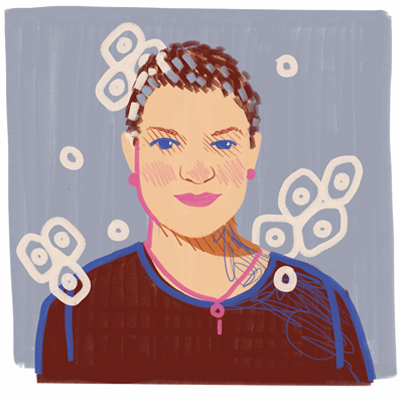Professor Maddy Parsons

Maddy Parsons holds a PhD in Biochemistry from University College London (UK). She also has a B.A. in Biology from the University of Bath (UK). Parsons has always loved Biology, but her passion for research arose while she was working on her PhD, as she developed studies on how skin cells form scars. Her studies focus on how cells adapt their shape to respond to the extracellular environment and the changes that occur in individuals with cancer and fibrosis.
Maddy uses a variety of different techniques in the lab, including molecular biology, advanced microscopy and biochemistry to study how proteins on the surface of cells respond to changes in biochemical and physical signals that characterize a certain disease. Her multidisciplinary work and research are developed in close collaboration with physicists, computer scientists and clinical biologists, as well as pharmaceutical and technology companies.
Maddy Parsons is the Chair of MRC Molecular & Cellular Medicine Board. She is also a member of MRC Strategy Board, Fellow of the Royal Microscopical Society, Fellow of the Royal Society of Biology, Delegate of the UK EMBL Council and Delegate of the Euro-BioImaging Board as well. She has been recognized for numerous achievements. She won the Biochemical Society’s Industry and Collaboration Award, the Supervision Excellence Award, the Royal Microscopical Society Life Sciences Medal, and the Royal Society University and Royal Society Senior University research grants.
The way she sees it, academic research in STEM fields has historically been very unbalanced, particularly at senior career stages. There have been efforts to give women more visibility, but there is still a lot to be done.
Diversity is critical in any profession as it ensures a balanced and culturally inclusive workplace. I have been fortunate to have some very strong female role models and mentors in my career. These women have inspired me to pursue my passion despite facing various gender-related barriers. I am strongly committed to helping improve diversity in science and hope that we can break down some of these barriers to ensure more equal gender representation in all STEM careers for future generations.


